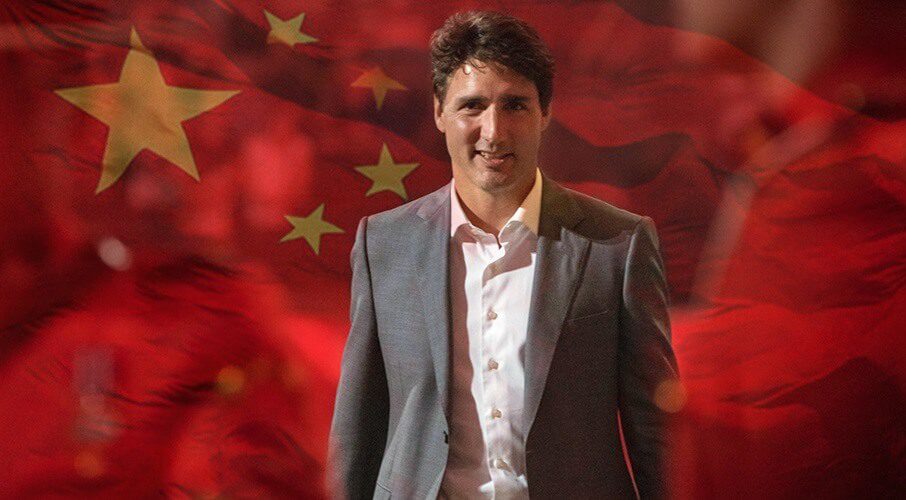This article originally appeared in the Toronto Star.
By Charles Burton, August 29, 2022
As we mark the six-month anniversary of Vladimir Putin’s assault on Ukraine and on world order, Prime Minister Justin Trudeau has announced the creation of a special team in Canada to counter the Kremlin’s raging disinformation campaign.
There is a real need to address this threat to the concept of truth, which is the basis of democracy and human rights. But why limit the team’s mandate to the lies of just one offender? This essentially tells China that Ottawa will not be responding to the more richly funded propaganda scheme being run out of Chinese embassies and consulates across Canada.
Chinese leader Xi Jinping touts this initiative as one of the Chinese Communist Party’s “magic weapons” of domestic and global manipulation. It has been used to sabotage World Health Organization research into the origins of COVID-19; suppress truth surrounding genocide against Uyghurs; and dissuade influential Canadians from promoting measures that threaten Beijing’s espionage efforts, including Canada’s security and technology partnerships with our allies.
The propaganda campaign, which includes conspiracy theories promulgated by pro-Beijing Chinese language media in Canada, threatens our democracy. It already cost Canadian MPs of Chinese heritage their seats in the last election, and because we do nothing about it, we can expect more in the next election. The Chinese-language media’s hate-mongering includes accusations of pervasive racism against everybody in Canada with Chinese ancestry. Readers of China’s WeChat and other platforms are implored to respond by identifying with the Motherland and becoming loyal to the Chinese Communist Party.
The disinformation campaign also maligns Canadian citizens of Chinese origin — like Xiao Jianhua, Huseyin Celil and 300,000 or so Canadians resident in Hong Kong — as “Chinese-Canadian passport holders,” implying some lesser Canadian citizenship than European-Canadian passport holders who are simply Canadians, with no hyphenated modifiers.
Ottawa’s refusal to confront this harassment of Tibetans, Uyghurs, Falun Gong and Chinese democracy activists in Canada is shameful. In 2020, then foreign minister François-Philippe Champagne promised to take action, but nothing happened. Last year Rob Oliphant, parliamentary secretary to the minister of foreign affairs, said Canada was “actively considering” a registry of foreign agents (similar to U.S. and Australian measures) to counter China’s malign activities in Canada. But this was evidently a hollow promise to appease Canadians’ resentment over China’s subversive operations here.
Canada seems incapable of doing anything about China, due to the incompatibility of the Ottawa doctrine that we must maintain close relations with Beijing regardless of public opinion. When China’s ambassador in Ottawa threatened Canada about crossing a “red line” on Taiwan, warning officials to draw lessons from the past (read: hostage diplomacy) if our MPs set foot in Taiwan, our prime minister didn’t even condemn the remarks, but simply urged MPs to reflect on the “consequences” of such a visit.
The government seems in similar paralysis over naming a new ambassador to China, a position that has been unfilled throughout 2022. Whoever is appointed will inherit the dark shadow of our last two ambassadors — John McCallum and Dominic Barton — who have personal business connections in China and were perceived as promoting Beijing’s interests over Canada’s. When it comes to Chinese diplomacy, Canadians increasingly assume that conflict of interest will prevail over Canada’s national interests and moral integrity.
Last June, Foreign Affairs Minister Mélanie Joly announced the formation of Canada’s Indo-Pacific Advisory Committee. After five years of promising a China policy reset, informed sources say the government’s China policy supporters on this committee are debating how to exclude any mention of China whatsoever in our Indo-Pacific policy declaration.
As this theatre of the absurd drags on, Canada’s lack of a principled China policy is debasing any confidence the U.S. and other allies have in Ottawa’s competence.
Sadly, based on the performance so far, there is no sign of any meaningful China “reset” coming out of Ottawa before the next federal election.
Charles Burton is a senior fellow at the Macdonald-Laurier Institute, a non-resident senior fellow of the European Values Center for Security Policy in Prague, and a former diplomat at Canada’s embassy in Beijing.





